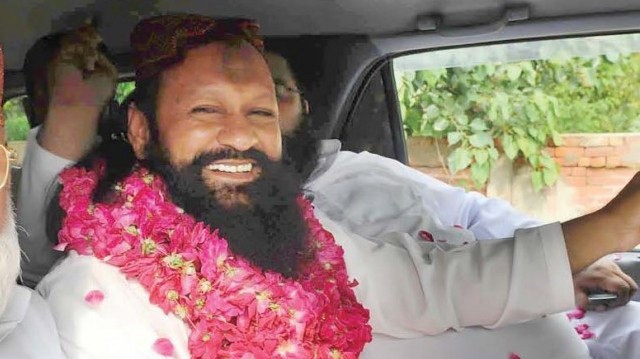

Despite the difference in their thoughts, interpretation of certain religious dictates, philosophy, and research about religion, different sects have co-existed for centuries in many parts of the world. In Pakistan, the situation has worsened as sectarian violence poses a serious threat to the very fabric of society.
In a bid to diffuse tensions between sects, the clergy representing different schools of thought have come forward and set up organizations, such as Tehreek Ittehad Bain-ul Muslimeen, Pakistan Ulema Council, Tanzeemul Madaris, and Wafaq ul Madaris. The idea behind this was to solve issues among sects through dialogue, convince them not to raise contentious issues, learn how to co-exist peacefully, and monitor madrassas to ensure they were not teaching intolerance to their studies through their curriculum.
The government’s initiative to form Aman (peace) Committees, comprising local notables from different walks of life and sects for this purpose also need a mention here.
What good have these bodies done or have they been a total failure? Are the recent examples of sectarian violence a proof of their inefficiency?
“No”, says Pakistan Ulema Council Chairman, Allama Tahir Ashrafi, who holds the state responsible for the situation. Citing the example of the Rawalpindi incident, he says the clergy had played its role and held timely meetings with the administration and identified the trouble spots. “I was present at the meeting of ulema with the Punjab home secretary. It was decided that there would be sufficient time difference between holding of Friday prayers and khutba at Fawwara Chowk and the march of the Ashura procession there.”
Ashrafi says the state has surrendered before a handful of people who may have come from different sects and exposed its weakness. He says Pakistan Ulema Council has started working at the grassroot level and introduced training courses for prayer leaders of different sects. “They would be taught how to avoid controversies, promote harmony among sects, and talk about contentious issues (in unavoidable situations) in a way they do not harm anybody’s feelings.”
Allama Nusrat Shahani of Jamia Al Muntazir, a leading shia madrassa, is of the opinion that hatred is being spread by design. He says, “There are elements who are out to weaken the state as they attack schools, mosques, innocent people on roads and markets, law enforcement personnel, etc. Attacking people of a sect serves their purpose as this triggers an unending series of retaliatory attacks merely on the basis of suspicion.”
Shahani says the basic issues of different Islamic sects are the same. They believe in one God, follow the same Prophet, and perform the same rituals. “The difference comes at secondarily level, which does not at all form the basis to justify violence. For example, shias and sunnis have a difference of opinion on who should have succeeded the Prophet (PBUH) after his death. The debate should end here and not go beyond it,” he says, adding, “Recently, ulema of different sects have visited Turkey and Iran together to see how sectarian issues are handled there. Their level of understanding of each others’ mind and the will to work together for this noble cause was exemplary.”
He says, earlier, sectarian differences were taken up in discussions but today, that has unfortunately not the case.
Ghulam Ahmed Raza Qadri, a social worker based in Gujjarpura scheme, has been a member of different Aman Committees formed during the month of Muharram. He claims such measures have worked and now people do not fight with each other over sectarian issues at the mohalla level. “Violence is triggered by acts of terrorism by the invisible and the unidentified. Do you see people quarrelling with each other over the control of mosques?”
The Pakistan Ulema Council, under Ashrafi, has come up with a 14-point code of conduct to be observed by religious organisations to end sectarian violence. For example, he says, they have mentioned in clear terms that no member of any Islamic sect can be declared infidel.
Collective efforts by the clergy to curb sectarian divides are worth appreciating but it is quite clear that it does not absolve the state of its responsibilities. The state has to act with a clear head and sense of direction.